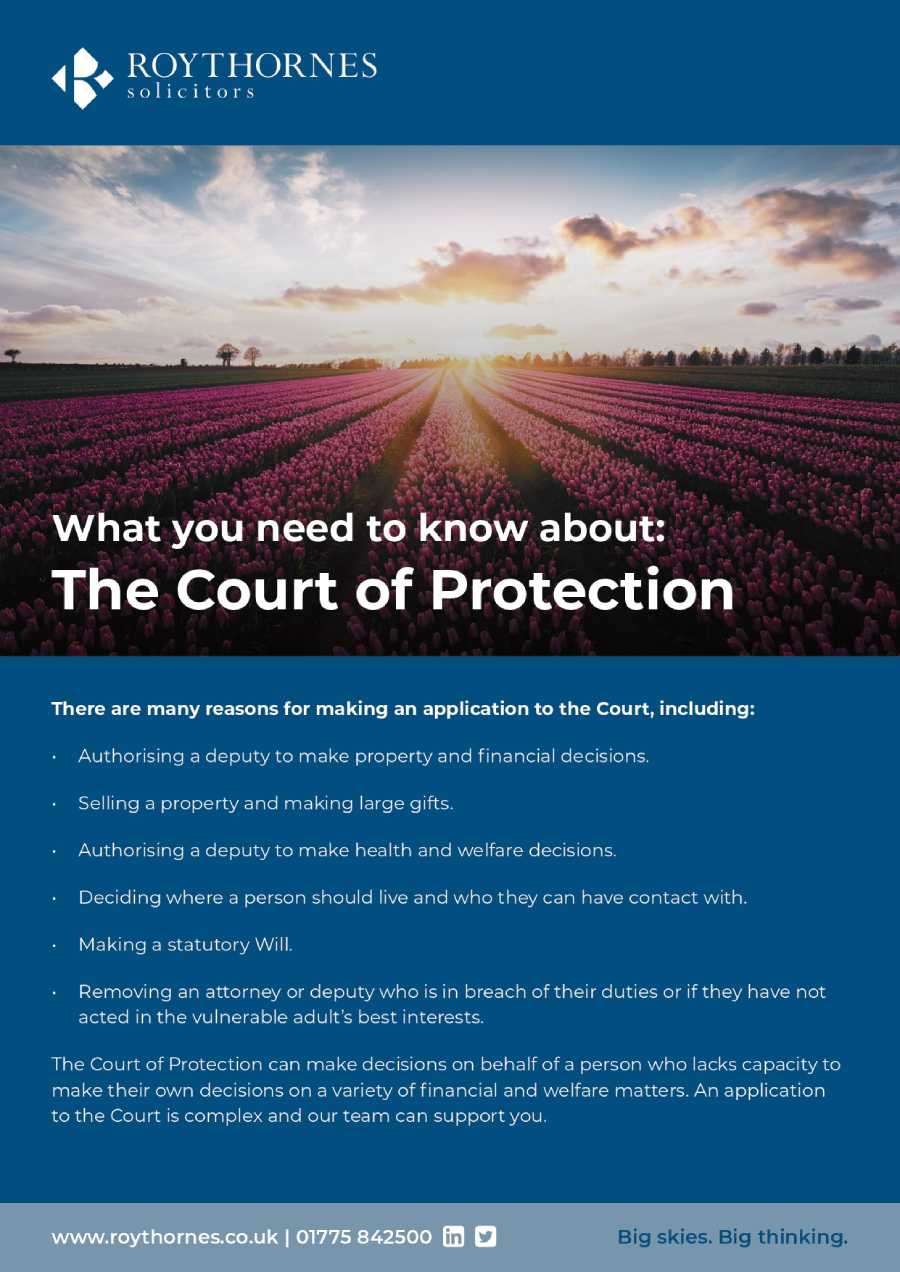This important arm of the High Court is responsible for overseeing the financial and welfare decisions and management undertaken on behalf of some of the most vulnerable individuals our society sees. We understand how the Court of Protection rules, the Mental Capacity Act 2005 and its associated code of practice affect our work in this arena and, most particularly, we can explain what the principles of best practice are that govern any decision-making undertaken on behalf of those subject to the regime.
Where an individual is assessed as having lost the capacity to manage generally, or specifically in relation to particular tasks, our team can guide potential deputies through the myriad of Court of Protection forms that need to be completed.
There are a variety of applications that can be made to the Court of Protection, including:
- Deputy appointments, giving you the authority to make decisions on a person’s behalf in relation to the property and financial affairs allowing you to manage the day-to-day transactions such as paying utility bills, arranging direct debits and benefits and health and welfare allowing you to make day-to-day decisions on care arrangements
- A Statutory Will or codicil: there are various reasons to request a Will (or codicil) on a person’s behalf and the Court will consider all circumstances in applying the best interest test
- Deprivation of liberty: this is a complex area that concerns the deprivation of a person’s liberty engaging the person’s rights under Article 5 of the European Convention on Human Rights (ECHR). There are two types of applications that the Court will consider, with their own procedures, resulting in a vastly complex area of law. Should you become concerned over a person’s confinement in a restricted place without the person being able to consent, a Court application might be required.
- Gifting: regardless of the type of authority (whether EPA, LPA or deputyship) the law placed restrictions on the level of gifting that can be carried out on the person's behalf. An application to the Court can give you permission to make large gifts, ensuring you do not breach your authority and/or be deemed to not act in that person's best interests. Gifting outside the scope of your authority can result in an investigation being carried out by the Office of the Public Guardian leading to your authority being removed.
Whether you wish to make an application to become a deputy or if you are a deputy and you seek a further application, our team are here to assist you in making the right application in the best interest of your family member or friend.
Appearing in the Court of Protection
The Court of Protection and its judges are well known for their approachability and sensitivity, and the process, on the whole, is well suited to individuals with cause to address the Court. Attending Court under any circumstances is nevertheless a daunting process, and if you find yourself requested to attend Court we can happily provide support in and out of Court, reassure you and ease your burden.
Panel deputy
Some families may wish to seek an appointment of a professional and experienced deputy to work with them to make the decisions required under an order of the Court of Protection.
Abuse and mismanagement by attorneys and deputies
Sadly, cases of financial abuse and the mismanagement of finances, through ignorance or deliberate steps, are still common occurrences. If you are concerned that an attorney is not acting in the best interests of those they care for, or a deputy is overstepping the limits of their authority, then we can also advise on what steps can be taken to reclaim the situation.
This can be especially difficult and traumatic where family members are concerned and we have the ability and sensitivity to ensure that disputes of this nature are resolved collaboratively and without escalation of already emotionally charged situations. Where there has been serious wrongdoing, we work with all the relevant agencies to recover misappropriated funds, and overcharges and, in some cases, ensure that the culprits are brought to justice.

